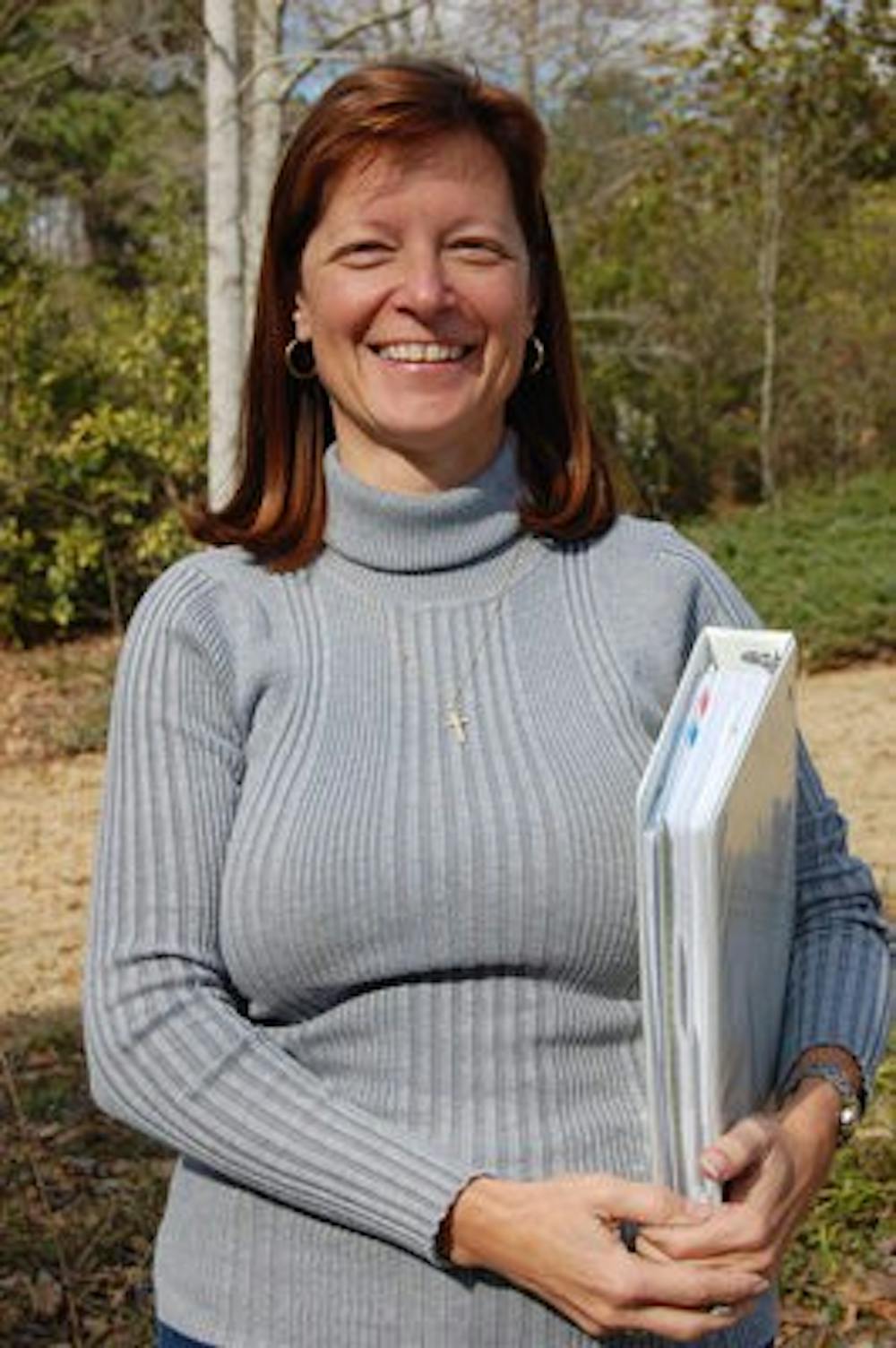Beth Vaughan's bachelor's and master's degrees in civil engineering trained her to have a sharp eye for facts, which she uses in an unexpected way.
Vaughan said she has the mentality of an engineer, which helps her in her role as a Court Appointed Special Advocate.
"I have the old, black-and-white mindset that there's not a lot of gray," she said. "There's not a lot of gray in my life or in my work because everything's either right or wrong. It's black and white. It's either above this number or below this number."
CASA volunteers are called on in custody disputes and other cases involving children, and they work solely to find the best possible situation for the child.
"We go through 30 hours of training," Vaughan said. "There will be a case that comes before the judge in the family court ... A case will come before him and we don't know what his rationale is for wanting to put a CASA on a case, but he will issue an order that says, 'Dear CASA, I want one of your volunteers on this case.'"
CASA volunteers like Vaughan are given access to records that aren't usually accessible to the public. Vaughan said once given a case she meets with the Department of Human Resources, the attorneys and the guardian ad lidem, the child's attorney.
"We advocate for the child," she said. "I don't necessarily care what happens to momma except if it's in the child's best interest to be reunited with mom or dad."
Sarah Sanger, junior in elementary education, said Vaughan has the necessary temperament to be a CASA.
"Beth is tough," Sanger said. "I don't think she'd ever be afraid to ask the hard questions, to hear the things you don't really want to hear."
Lauren Smith, senior in pre-med, was a CASA child.
"(Beth) is immensely compassionate, unyielding, creative, and she shows love in so many ways," Smith said. "She definitely pulls out all the stops when she pursues something, and that's reflected in her work with CASA when she researches every aspect of the cases she receives."
Vaughan was assigned her first case in September of last year. She currently has two cases, a 13-year-old and a 9-month-old, both of whom are in foster care.
"They're completely different cases," she said. "A 13-year-old can tell you what she wants. A 9-month-old just looks at you."
Vaughan said working these cases has required a different skill set.
"Some of your parents are substance abusers, some are physical, some are sexual," she said. "You have to be willing to listen to it all. Your insides just want to strangle them, but you can't. All you can do is listen. That's all you're there to do."
Sanger said she sometimes doesn't know how Vaughan does it.
"I think you have to be really level-headed and fair to be a CASA, but at the same time you have to be compassionate," Sanger said. "I think Beth has to balance both, and in situations like this, it can't be easy."
Smith said she owes a part of who she is today to CASA volunteers like Vaughan.
"CASA accomplished its overall mission in my life," she said. "It moved me into a safe custody situation. It helped my family heal grave and ugly wounds, and it removed us from further danger and corruption. While these are all wonderful things, i see the rewards i have gained from this program to be so much greater.
"Because of CASA, I gained a renewed faith in people after a time in my life when I couldn't trust anyone. I learned that staying quiet about domestic abuse is never the answer, and that even when my voice was too small there was always someone who could fight for me."
CASA volunteers can stay with a child's case for years.
"Until the child is in a permanent home, out of foster care, that's when my services are no longer needed," Vaughan said. "That doesn't mean I can't keep up with them."
Vaughan said she hopes to keep up a relationship with these children, and she's confident she'll see them settled in a safe and permanent home.
"I was at Sips 'n Strokes the other day and we did a painting with a big funky heart with the word love in it," she said. "It's really cute. I'm going to give that to my 13-year-old when she finds a home. When she's where she's meant to be, she gets that painting."
Do you like this story? The Plainsman doesn't accept money from tuition or student fees, and we don't charge a subscription fee. But you can donate to support The Plainsman.





